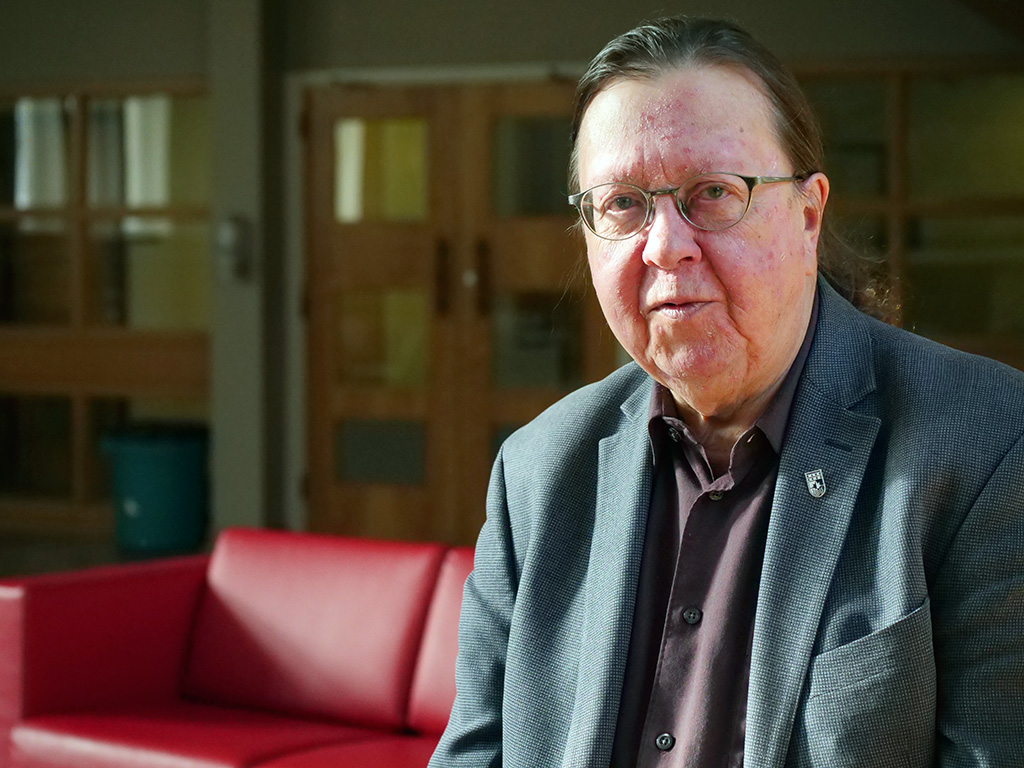
USask awarded $4.9 million for Indigenous health research, HIV and cancer
SASKATOON – Five University of Saskatchewan (USask) research teams have been awarded a total of $4.85 million by the Canadian Institutes of Health Research (CIHR)—the main funding body for university health research in Canada—for cutting-edge health research on cancer, HIV and Indigenous health.
The grants include $2.26 million for research into re-awakening and applying Indigenous knowledge of wellness, a project led by College of Medicine researchers Malcolm King and Dr. Alexandra King, Cameco Chair in Indigenous Health at USask.
The four-year study will promote wellness across every stage of a person’s life. A network of Indigenous health knowledge development centres will be established in different communities. These First Nations and Métis communities will be the primary research leaders.
“We will explore what makes and keeps Indigenous people and communities well, and how Indigenous wellness can be achieved or re-gained through practices and interventions based on a blending of traditional and Western knowledge,” said Malcolm King, who is also scientific director of the Saskatchewan Centre for Patient-Oriented Research and a member of the Mississaugas of the Credit First Nation.
King said that re-awakening knowledge of wellness will not only benefit the physical health of Indigenous people, but also their mental, emotional and spiritual health and well-being.
“A lot of communities have connections to the land and there is a sense that is widely held that traditional activities—for example the harvesting of medicinal plants or wild rice—have many benefits and are connected with wellness. Many communities realize they are now doing fewer traditional activities that connected them to the land and which promoted the holistic health of their community,” he said.
USask’s success in the national funding awards will also further boost cancer and HIV research in Saskatchewan.
“This cutting-edge health research—some of which uses our world-class cyclotron facility for nuclear imaging—will not only benefit people in the province, but throughout Canada,” said USask Vice-President Research Karen Chad. “In particular, USask is becoming a centre of excellence in Indigenous health research and this Indigenous wellness grant will enable further achievements in this important field of study.”
Two research teams dedicated to finding therapies for colorectal cancer—the second leading cause of cancer deaths in Canada—have been awarded CIHR funding.
- Humphrey Fonge, a radio-pharmacist and expert in precision diagnostics, was awarded $872,000 to develop a set of new therapies for advanced colorectal cancer. Fonge and his team have created an antibody with attached radioactive molecules which cling to colorectal cancer cells and kill them. His team is also developing an antibody which attaches to colorectal cancer cells, allowing doctors to track the spread of the cancer and the growth of tumours. This development by Fonge’s team will enable earlier diagnosis and more personalized treatment.
- A team led by Shahid Ahmed, clinical associate professor of medicine, has been awarded $100,000 for research into treatment for advanced colorectal cancer that has spread to the liver. The researchers will evaluate the effectiveness of a four-drug combination chemotherapy regimen in shrinking liver tumours—which were considered too large to remove—to a size where they could be removed surgically. This will help establish a standard chemotherapy regime for colorectal cancer patients in Canada for whom surgery could lead to a complete removal of the cancer that has spread. Dr. Ahmed’s team will also analyse the characteristics of patients who benefited from this chemotherapy regimen to better predict responses to the treatment in future.
Research to help better understand how to support the body’s natural defence against the HIV virus will be investigated by a team led by College of Medicine microbiologist and biochemist Linda Chelico. There are currently around 37 million people world-wide living with HIV/AIDS.
Chelico’s team, awarded $864,450, is examining a battalion of natural proteins in the body which work together to attack the HIV virus and destroy it by mutating its genetic information. Chelico is looking at how these proteins, when they are themselves assaulted by the powerful HIV virus, support each other and fight back. The aim of the five-year project is to develop new therapies that will bolster the immune system’s natural weapons against HIV.
USask research into a novel therapy for a type of bone cancer that affects teenagers and young adults, as well as pet dogs, is backed in $765,000 of CIHR funding.
The team led by radio-pharmacist Ekaterina Dadachova (College of Pharmacy and Nutrition) and pathologist Maruti Uppalapati is targeting a protein expressed by the cancer osteosarcoma. In previous research, the team successfully used radioactive antibodies to destroy tumor cells. The team now plans to create human radioactive antibodies that would target cancer cells in people and pet dogs, killing the tumors without harming healthy tissue.
This type of bone cancer is one of the most common cancers in pet dogs, particularly in large breeds such as Newfoundlands. Treatments for dogs with cancer are currently limited.
Both Fonge and Dadachova use the state-of-the-art facilities at the university’s Saskatchewan Centre for Cyclotron Sciences, which is managed by USask’s Fedoruk Centre.
-30-
For more information contact:
Media Relations Specialist
University of Saskatchewan
306-966-1851
jennifer.thoma@usask.ca

